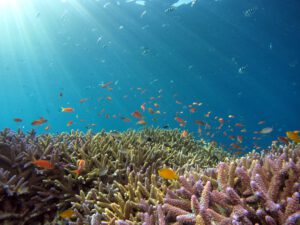 Cetacean-lovers learn how to rescue beached mammals in Abu Dhabi and Dubai.
Cetacean-lovers learn how to rescue beached mammals in Abu Dhabi and Dubai.
Humans engage in all manner of self-destructive behavior, and whales beach themselves. What’s worse, because they are deeply attached to other members of their pod, when senior whales beach themselves, the rest of the “family” will follow suit. The results are devastating, not only for the whales but also for onlookers who watch as these gentle giants struggle, slowly, against death on the beach.
Saving them is no easy feat. Whales, whose poop is essential to marine environments, can weigh thousands of pounds. Not only does this make them difficult to move, but often their internal organs and ribs are compromised by the force of their own weight. Since they endure significant anxiety and have to be handled very carefully, UK experts traveled last week to the UAE to teach 50 well-meaning participants how to avoid doing more harm than good while protecting their favorite dolphins, dugongs, and whales.
One of the first things that divers, environmentalists, aquarium representatives, schoolteachers, and wildlife experts learn is that marine mammals are not fish. They need to breathe. People that rush to splash water on beached mammals – a good thing to do – they inadvertently drown them instead by plugging up their blowholes.
The British Divers Marine Life Rescue group was invited by the Emirates Natural History Group. The deputy Chairman, Mr. Keith Taylor, arranged courses in Dubai and in Abu Dhabi, according to The National.
“There are a lot of people who spend time by the sea – divers, fishermen, beachcombers and natural history buffs – so we thought it would be a good idea to teach people how to care for the mammals of the sea,” he said. “It wasn’t in response to a perceived need for rescuing mammals, so much as when we got people together we realised there was such a need, and now we are working on building up a network of concerned people.”
Mr. Marsh and Richard Ilderton gave participants both practical and theoretical lessons. In addition to learning how to identify various species of whale, dolphin, and dugong, they were taught how to life and move a beached creature.
Since there weren’t a steady supply of beached mammals with which to demonstrate, learners lifted inflatable creatures filled with water and air in order to get a sense of their weight.
They also learned to use pontoons, which makes the difference between being able to save a beach mammal and not.
“You have little time to act when a mammal becomes beached,” Mr. Ilderton told the paper. “One pontoon system costs around Dh20,000, but, he said, it would radically alter the chances of survival for any beached mammal.”
“Currently, the survival rate is pretty much zero,” he said. “With one of these, it could potentially be 100 per cent if the animal is fit enough to go back in the water.
The UK representatives hope that the UAE will set an example for the rest of the Middle East.
:: The National
More about whales in the Middle East:


